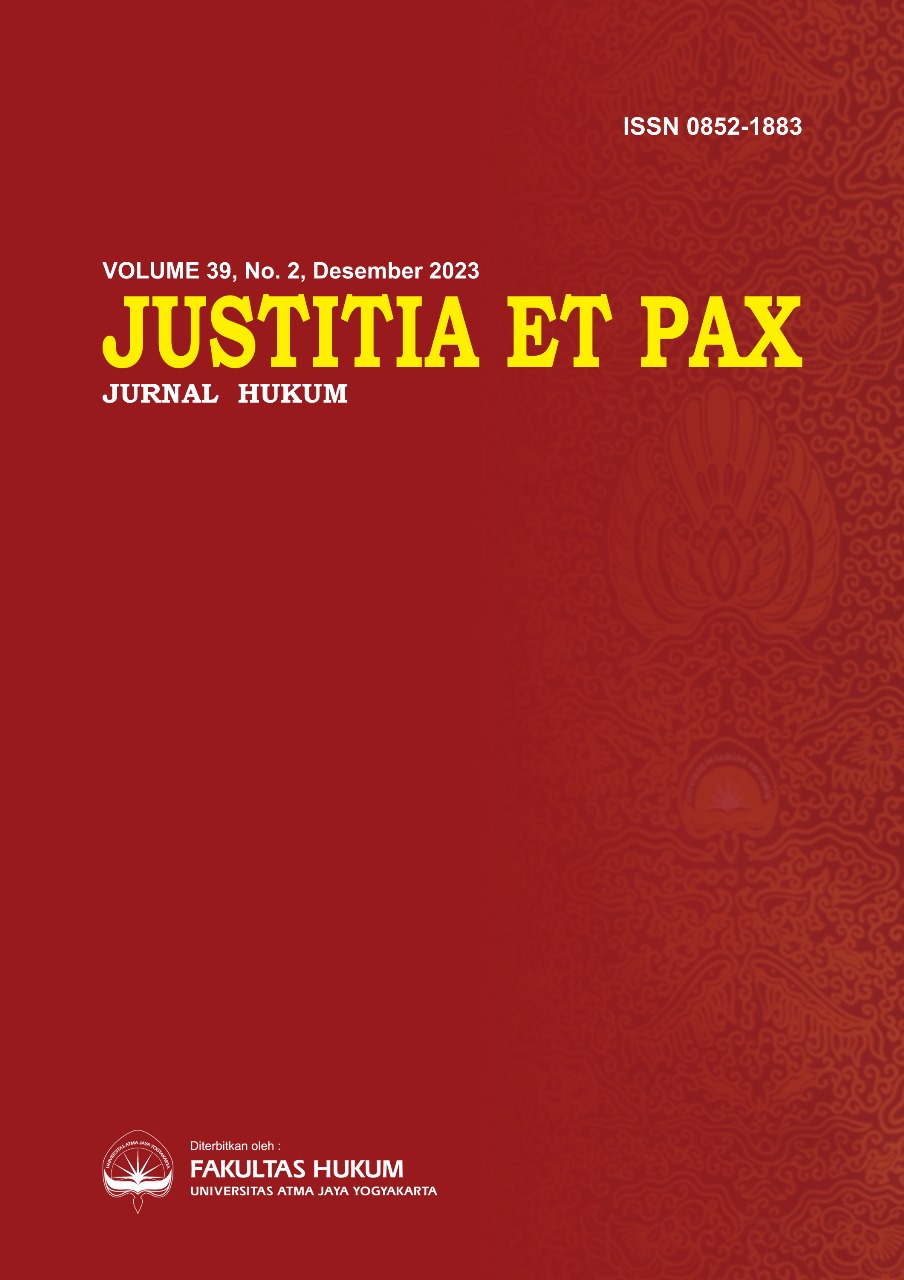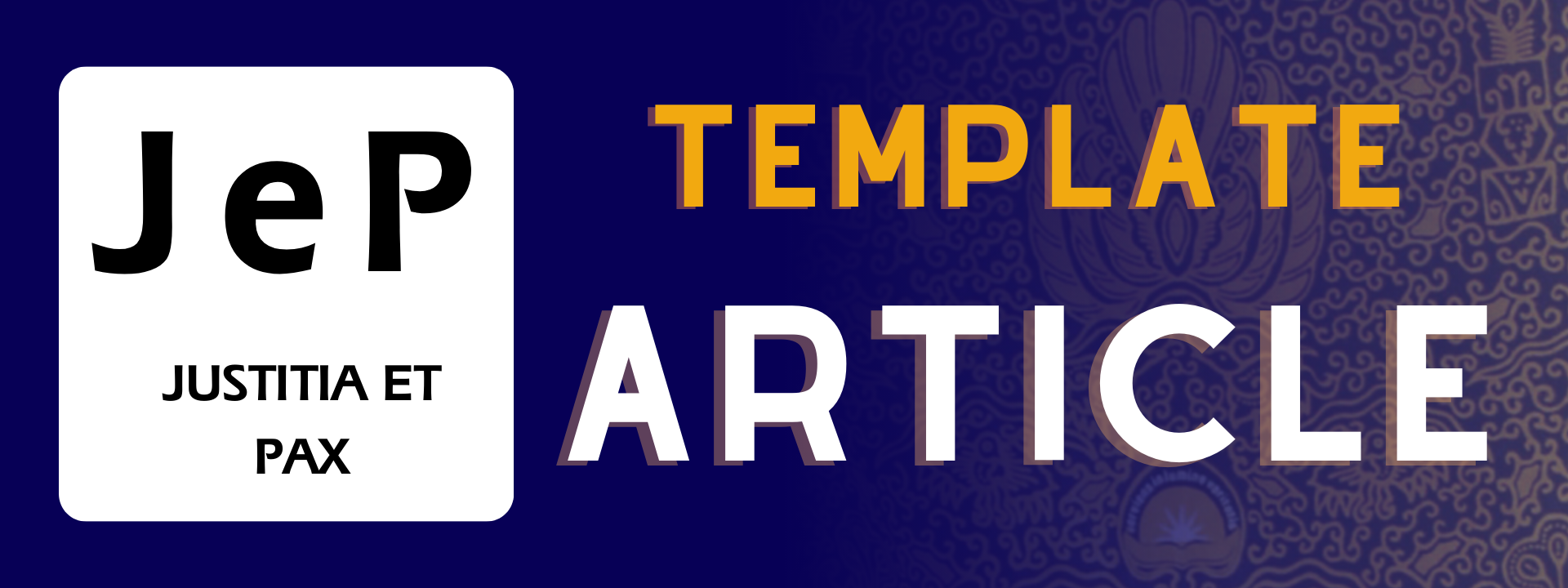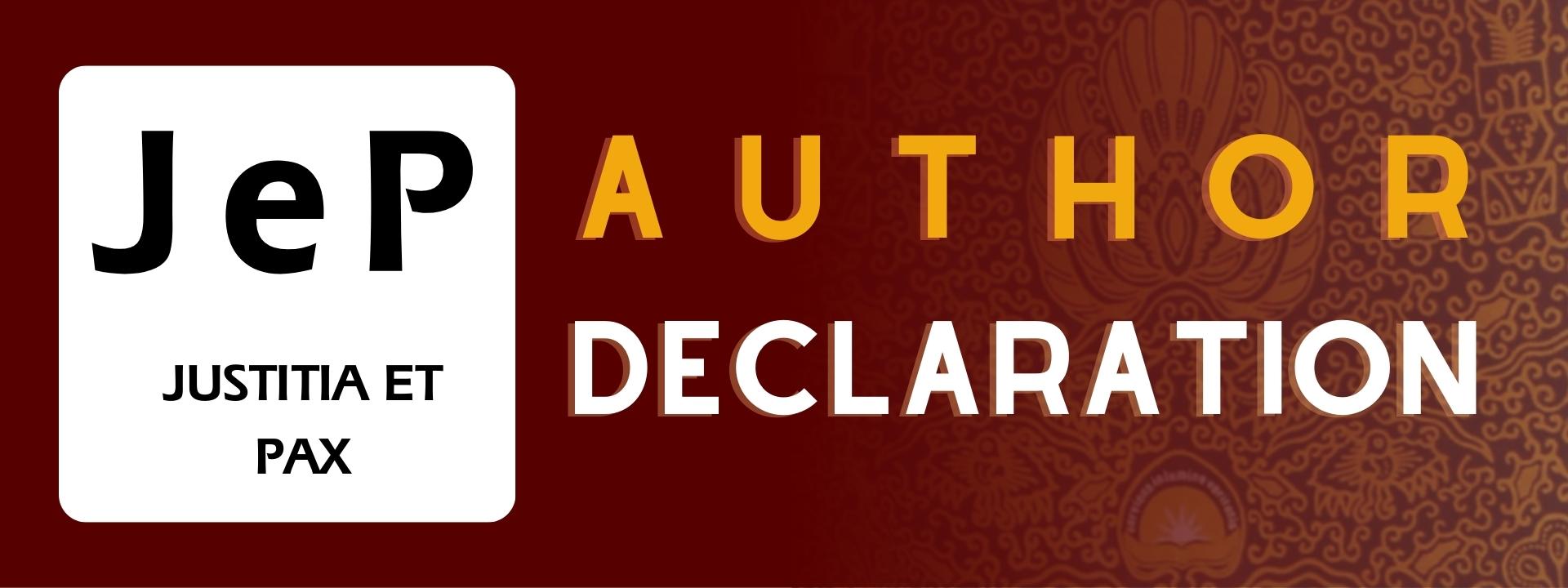IMPLEMENTASI PRINSIP KONSEP RESTORATIVE JUSTICE PADA PELAKSANAAN DIVERSI (STUDI KASUS DI D. I. YOGYAKARTA)
DOI:
https://doi.org/10.24002/jep.v39i2.7499Keywords:
Child is in Conflict with the Law, Diversion, Investigation, Restorative JusticeAbstract
The concept of restorative justice is the basis for implementing diversion in Law Number 11 of 2012 concerning the Juvenile Criminal Justice System. Diversion is presented to prevent children in conflict with the law from the bad excesses of the criminal justice system and return the condition of children, victims and communities to the state they were in before the crime occurred. However, based on data from the Indonesian Child Protection Commission (KPAI), criminal acts committed by children continue to increase every year. This research aims to see whether the concept of restorative justice is achieved or not in the implementation of diversion. The problem studied is whether the implementation of diversion is by the principles of restorative justice seen from the cases studied. If it is not by the principles of restorative justice, are there other alternatives so that the principles of restorative justice are fulfilled? The research used an empirical approach by examining 7 cases of child diversion spread across the Yogyakarta City Police and Sleman Police. Cases were analyzed using 3 principles and 4 values of restorative justice coined by Van Ness and Strong. The results of this research concluded that 5 out of 7 cases did not meet the criteria for the restorative justice concept, the rest did. Other methods are needed that can facilitate the implementation of the principles of restorative justice, namely the approach of the perpetrator's family to the victim's family before implementing diversion, the influence of the victim's parents in the diversion process, and mutually agreed compensation.
References
Buku
Atmasasmita, Romli, 2013, Sistem Peradilan Pidana Kontemporer, Prenada Media Group, Jakarta.
Dignan, James, 2019, Understanding Victim and Restorative Justice, Open University Press, New York.
Djulaeka dan Devi Rahayu, 2019, Buku Ajar: Metode Penelitian Hukum, Scopindo Media Pustaka, Surabaya.
Efendi, Joenadi, 2018, Metode Penelitian Hukum Normatif dan Empiris, Prenada Media, Depok.
Hamzah, Andi, 2015, Delik-Delik Tertentu (Speciale Delicten) di dalam KUHP, Sinar Grafika, Jakarta.
Hamzah, Andi, 2019, Hukum Pidana Indonesia, Sinar Grafika, Jakarta.
Hiariej, Eddy O.S., 2015, Prinsip-prinsip Hukum Pidana (Edisi Revisi), Cahaya Atma Pustaka, Yogyakarta, 2015.
Indah, Maya S., 2014, Perlindungan Korban: Suatu Perspektif Viktimologi dan Kriminologi, Edisi Kedua, Kencana Prenadamedia Grup, Jakarta.
Moerad, Pontang, 2014, Pembentukan Hukum Melalui Putusan Pengadilan dalam Perkara Pidana, Alumni, Bandung.
Rahmawati, Maidina, et.al., 2022, Peluang dan Tantangan Penerapan Restorative Justice dalam Sistem Peradian Pidana di Indonesia, Institute for Criminal Justice Reform, Jakarta.
Salman, Otje dan Anthon F. Susanto, 2013, Teori Hukum: Mengingat, Mengumpulkan dan Membuka Kembali, Rafika Aditama, Yogyakarta.
Sullivan, Dennis dan Alrry Tifft, 2014, Handbook of restorative Justice: A Global Perspective, Routledge Taylor and Francis Group, London and New York.
Van Ness, Daniel W. dan Karen Heetderks Strong, 2014, Restoring Justice: An Introduction to Restorative Justice, LexisNexis Group, New Providence.
_____________________________________________, 2015, Restoring Justice an Introduction to Restorative Justice, Elsevier, Waltham.
Wiyono, R., 2015, Sistem Peradilan Pidana Anak di Indonesia, Sinar Grafika, Jakarta.
Jurnal
Arief, Hanafi dan Ningrum Ambarwati, “Penerapan Prinsip Restorative Justice dalam Sistem Peradilan Pidana di Indonesia”, Jurnal Hukum Al’Adl, Vol. 10, No. 2, 2018.
Daly, K., “What is Restorative Justice? Fresh answers to a Vexed Question”, Victims and Offenders, Vol. 11, No. 1, 2015.
Daly, K. dan R. Immarigeon, “The Past, Present, and Future of Restorative Justice: Some Critical Reflections”, Contemporary Justice Review, Vol. 1, No. 1, 1998.
Gang, Daye, et.al., “A Call for Evolution of Restorative Justice Program”, Trauma, Violance, and Abuse Journal, Vol. 22, No. 1, 2021.
Hambali, Azward Rachmat, “Penerapan Diversi terhadap Anak yang Berhadapan dengan Hukum dalam Sistem Peradilan Pidana”, Jurnal Ilmiah Kebijakan Hukum, Vol. 13, No. 1, 2019.
Maruna, Shadd, “The Role of Wounded Healing in Restorative Justice: An Appreciation of Albert Eglash”, Restoratice Justice: An International Journal, Vol. 2, No. 1, 2014.
Satria, Hariman, “Restorative Justice: Paradigma Baru Peradilan Pidana”, Jurnal Media Hukum, Vol. 25, No. 1, 2018.
Suzuki, Mashiro dan Tamera Jenkins, “Apology-Forgiveness Cycle in Restorative Justice, But How?”, International Review of Victimology, Vol. 29, No. 1, 2022.
Wibowo, Padmono, “Pentingnya Mitigasi Resiko Dampak Kepenuhsesakan pada Lapas dan Rutan di Indonesia”, Jurnal Ilmiah Kebijakan Hukum, Vol. 14, No. 2, 2020.
Willis, Roxana dan Carolyn Hoyle, “The Good, The Bad and The Street: Does Street Culture Effect Offender Communication and Reception in Restorative Justice”, European Journal of Criminology, Vol. 19, No. 1, 2022.
Witasari, Aryanti dan Muhammad Sholikul Arif, “Implementasi Diversi Guna Mewujudkan Restorative Justicedalam Sistem Peradilan Pidana Anak”, Jurnal Hukum Fakultas Hukum Unissula, Vol. 35, No. 2, 2019.
Wulandari, Cahya, “Dinamika Restorative Justice dalam Sistem Peradilan Pidana di Indonesia”, Jurnal Jurisprudence, Vol. 10, No. 2, 2020.
Internet
Balitbang Hukum dan HAM, “Data Lapas di Indonesia”, https://www.balitbangham.go.id/detailpost/data-lapas-di-indonesia-agustus-2017, diakses tanggal 24 Januari 2022.
Setyawan, David, “KPAI: Enam Tahun Terakhir, Anak Berhadapan dengan Hukum Mencapai angka 9.266 Kasus”, https://www.kpai.go.id/berita/kpai-enam-tahun-terakhir-anak-berhadapan-hukum-mencapai-angka-9-266-kasus, diakses tanggal 23 September 2020.
Dokumen Hukum dan Peraturan Perundang-Undangan
Kesepakatan Diversi di Polsek Moyudan, dituangkan kembali pada Penetapan Pengadilan Negeri Sleman Nomor 14/Pen.Div/2022/PN Smn, Tanggal 18 Juli 2022.
Kitab Undang-Undang Hukum Pidana.
Laporan Penelitian Kemasyarakat untuk Diversi an. RAP Nomor Registrasi IA/50/Lit/Div/A/X/2020.
Laporan Penelitian Kemasyarakatan untuk Diversi an. VAP Nomor Registrasi IA/32/Lit Div/A/VII/2022.
Peraturan Kepolisian Negara Republik Indonesia Nomor 8 Tahun 2021 tentang Penanganan Tindak Pidana Berdasarkan Keadilan Restoratif.
Undang-Undang Nomor 11 Tahun 2012 tentang Sistem Peradilan Pidana Anak (Lembaran Negara Republik Indonesia Tahun 2012 Nomor 153).
Undang-Undang Nomor 23 Tahun 2002 tentang Perlindungan Anak (Lembaran Negara Republik Indonesia Tahun 2014 Nomor 297).
Downloads
Published
Issue
Section
License

This work is licensed under a Creative Commons Attribution-NonCommercial-ShareAlike 4.0 International License.
Authors who publish with this journal agree to the following terms:
- Authors retain copyright and grant the journal right of first publication with the work simultaneously licensed under a Creative Commons Attribution License that allows others to share the work with an acknowledgement of the work's authorship and initial publication in this journal.
- Authors are able to enter into separate, additional contractual arrangements for the non-exclusive distribution of the journal's published version of the work (e.g., post it to an institutional repository or publish it in a book), with an acknowledgement of its initial publication in this journal.
- Authors are permitted and encouraged to post their work online (e.g., in institutional repositories or on their website) prior to and during the submission process, as it can lead to productive exchanges, as well as earlier and greater citation of published work (See The Effect of Open Access).

This work is licensed under a Creative Commons Attribution-NonCommercial-ShareAlike 4.0 International License.




















